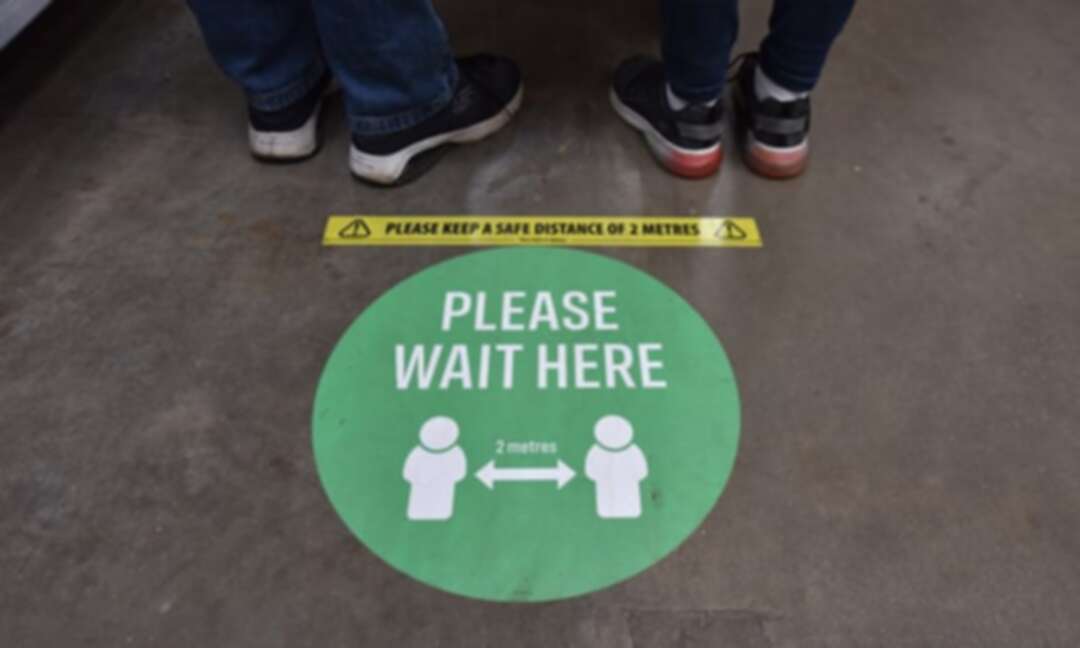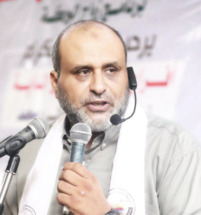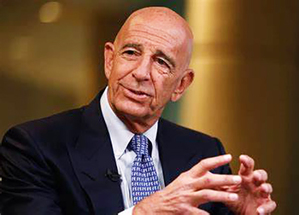-
Test and trace needs radical overhaul to prevent further Covid surges in England – experts

Exclusive: Healthcare professionals increasingly concerned about use of outsourced call-centre staff carrying out interviews
England’s test-and trace system will fail to prevent further surges of coronavirus without radical improvements by spring, experts have said, as concern increases about the use of inexperienced call-centre workers to carry out the role of clinically trained staff.
The government’s £22bn programme is under increasing strain as it attempts to contact nearly triple the number of infected people and more than double the number of close contacts compared with a month ago.
There is increasing concern among test-and-trace healthcare professionals about the use of outsourced call centre staff, often employed on minimum wage by telesales firms contracted by Serco, who have been drafted in to carry out detailed interviews with coronavirus patients.
Previously, these call centre workers were responsible for the relatively straightforward role of telling close contacts of infected people to self-isolate. Since October, however, many have been drafted in to interview Covid-19 patients, detailing their movements and finding out whom they may have infected – complex work which was previously only carried out by qualified healthcare staff.
One clinical caseworker, who has worked for test and trace since its launch last May, said he was appalled by the use of completely unqualified junior staff to carry out such sensitive work with seriously ill and often vulnerable people. Call centre workers have previously said they felt ill-prepared for the role.
In an email to Matt Hancock last week, the healthcare professional said he had reported call centre staff, termed tier 3 workers, numerous times to NHS Professionals, the organisation that recruits temporary staff for the NHS, because of “missing or inappropriate actions”. He said many of these cases had potentially serious outcomes.
He wrote to the health secretary: “Life and death is an oft-used phrase, but in the case of dealing with Covid cases, it really is. As a matter of urgency I ask that all tier 3
The healthcare worker, who has more than 40 years of experience in communicable diseases and environmental health, said he had repeatedly raised concerns about junior call-handlers unnecessarily delaying calls to Covid-19 patients because they needed a translator, falsely claiming they have tried to call people, and rescheduling calls for 24 hours later claiming “the case was too busy to talk” or “the case was having dinner”.
The government’s Scientific Advisory Group for Emergencies (Sage) has said that 80% of an infected person’s close contacts must be told to self-isolate within 48 to 72 hours for the national programme to be effective, so any delay risks allowing the disease to spread.
The latest figures showed that the proportion of infected people being reached by test and trace fell to its lowest level since late October (84.9%) as demand on the system surged in December. The number of infected people reached within 24 hours fell to its lowest level since mid-November (73%).
A Department of Health and Social Care spokesperson said the department was freeing up healthcare staff by increasing responsibilities for privately employed call handlers and that they were not giving out clinical advice.
He said: “NHS test and trace – the biggest testing system in Europe – is doing everything possible to break chains of transmission and, to date, the service has told over 5.1 million people to self-isolate, including those testing positive and their close contacts.”
But NHS sources said the new model was increasing the strain on experienced clinicians – those working in tier 1 on test and trace – whom they said were being inundated with queries from unqualified call handlers.
There is also concern that the programme is worsening the staffing crisis in some hospitals by ordering medics to self-isolate unnecessarily when they have been in close contact with an infected person. “It takes people out of work when they don’t need to be and reduced staffing is by far the biggest risk for transmission,” said a senior hospital doctor.
Experts said they were alarmed at the lack of a long-term strategy to bring Covid-19 under control once the 14 million most vulnerable people have been vaccinated by the government’s target of mid-February.
One contact tracer said the government needed to provide further support to people who had to isolate, improving compliance with the rules. He said that of 259 calls he made to Covid-19 cases in November and December, 56% (144) did not answer.
Research suggests fewer than 20% of those who should isolate do so fully. The self-reported ability to isolate is three times lower in those who earn less than £20,000 a year or have less than £100 in savings.
Deepti Gurdasani, a senior lecturer in epidemiology and statistical genetics at Queen Mary University of London, said the government must set out a long-term strategy for containing Covid-19 beyond the spring, including an improved test, trace and isolate system.
“I don’t really understand what the government’s plan is,” she said. “We were told we had a world beating test, trace and isolate system – that completely and utterly failed to contain the virus and we have the second surge and now the third surge.”
Susan Michie, a member of the Scientific Pandemic Influenza Group on Behavioural Science, a Sage subcommittee: said: “Test, trace and isolate has been one of the big failures of this government over 2020.”
Michie, a professor of health psychology at University College London, urged ministers to learn from successful test, trace and isolate systems overseas and build a detailed, locally led system staffed by healthcare professionals.
“This needs to be done by people who not only skilled but trusted in the communities – it needs to be done locally,” she said.
source: Josh Halliday
Levant
You May Also Like
Popular Posts
Caricature
BENEFIT Sponsors BuildHer...
- April 23, 2025
BENEFIT, the Kingdom’s innovator and leading company in Fintech and electronic financial transactions service, has sponsored the BuildHer CityHack 2025 Hackathon, a two-day event spearheaded by the College of Engineering and Technology at the Royal University for Women (RUW).
Aimed at secondary school students, the event brought together a distinguished group of academic professionals and technology experts to mentor and inspire young participants.
More than 100 high school students from across the Kingdom of Bahrain took part in the hackathon, which featured an intensive programme of training workshops and hands-on sessions. These activities were tailored to enhance participants’ critical thinking, collaborative problem-solving, and team-building capabilities, while also encouraging the development of practical and sustainable solutions to contemporary challenges using modern technological tools.
BENEFIT’s Chief Executive Mr. Abdulwahed AlJanahi, commented: “Our support for this educational hackathon reflects our long-term strategic vision to nurture the talents of emerging national youth and empower the next generation of accomplished female leaders in technology. By fostering creativity and innovation, we aim to contribute meaningfully to Bahrain’s comprehensive development goals and align with the aspirations outlined in the Kingdom’s Vision 2030—an ambition in which BENEFIT plays a central role.”
Professor Riyadh Yousif Hamzah, President of the Royal University for Women, commented: “This initiative reflects our commitment to advancing women in STEM fields. We're cultivating a generation of creative, solution-driven female leaders who will drive national development. Our partnership with BENEFIT exemplifies the powerful synergy between academia and private sector in supporting educational innovation.”
Hanan Abdulla Hasan, Senior Manager, PR & Communication at BENEFIT, said: “We are honoured to collaborate with RUW in supporting this remarkable technology-focused event. It highlights our commitment to social responsibility, and our ongoing efforts to enhance the digital and innovation capabilities of young Bahraini women and foster their ability to harness technological tools in the service of a smarter, more sustainable future.”
For his part, Dr. Humam ElAgha, Acting Dean of the College of Engineering and Technology at the University, said: “BuildHer CityHack 2025 embodies our hands-on approach to education. By tackling real-world problems through creative thinking and sustainable solutions, we're preparing women to thrive in the knowledge economy – a cornerstone of the University's vision.”
opinion
Report
ads
Newsletter
Subscribe to our mailing list to get the new updates!






















